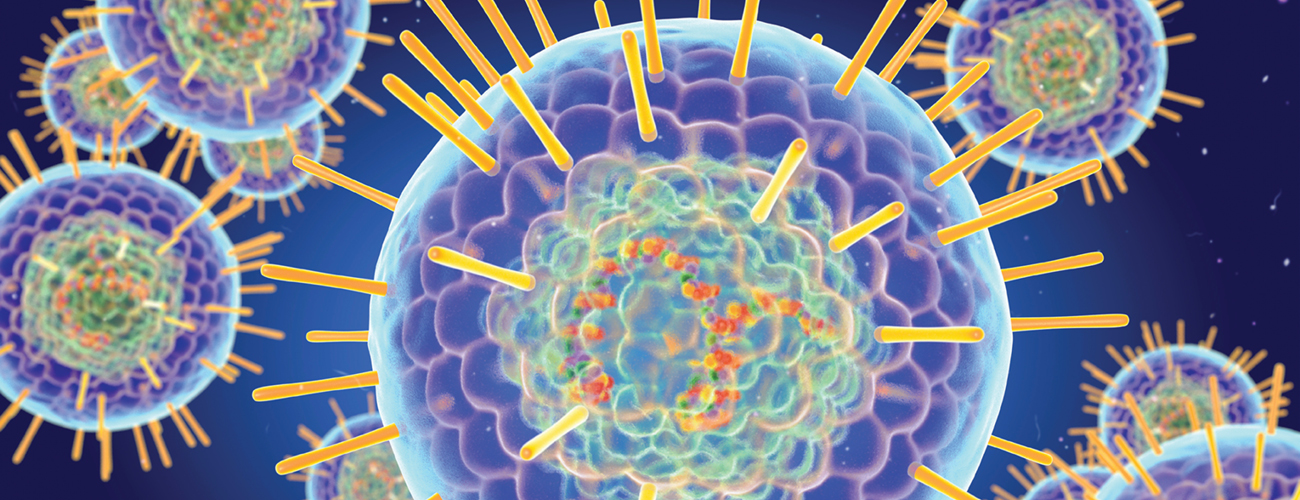
An effective vaccine against herpes viral infections caused by either HSV-1 or HSV-2 remains elusive. Genital herpes (primarily caused by HSV-2) is notorious for promoting HIV infection, and vaccinating against HSV-2 could have a major effect on HIV transmission. An ideal herpes vaccine would not only protect against both HSV-1 and HSV-2 but also protect people already infected with HSV-1 (more commonly associated with oral disease and highly prevalent worldwide) from becoming infected by HSV-2.
In a study published in May in npj Vaccines, Betsy Herold, M.D., and colleagues showed that their experimental HSV-2 vaccine, called ΔgD-2, protects against HSV-2 infection in mice already infected with HSV-1. When a different vaccine candidate was used on mice infected with HSV-1, it provided no significant protection against HSV-2 superinfection. By contrast, the ΔgD-2 vaccine completely protected the HSV-1-infected mice from HSV-2 superinfection.
Dr. Herold is a professor of pediatrics, of microbiology & immunology, and of obstetrics & gynecology and women’s health. She also holds the Harold and Muriel Block Chair in Pediatrics at Einstein and is chief of the division of pediatric infectious diseases at Einstein and Montefiore.